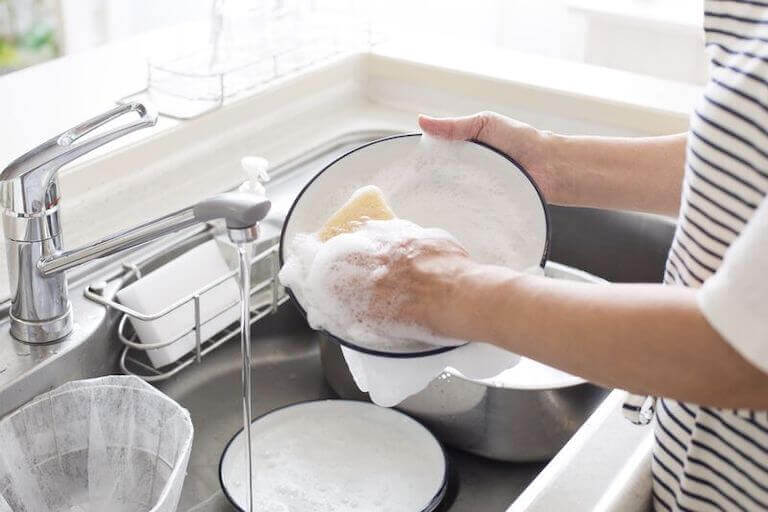Listen to This Article:
When you envision starting a catering business, you may think of dropping off cookie trays at bridal showers or cooking dishes full of lasagna for birthday parties. However, before you can start preparing food and serving it to others, you’ll need to obtain the necessary catering licenses and permits.
In order to run your catering company legally, you will likely need to obtain both business permits and food safety licenses. The exact permit requirements will vary depending on your location, but you can start with this general guide.
Catering Business Permits and Licenses
Obtaining the following permits and licenses for your catering company can allow you to legally conduct business operations.
Determine Your Catering Business Structure
Before you can begin applying for permits and catering licenses, you’ll need to officially create your business! Doing so requires you to determine not only your business name, but also how you’d like to structure your business.
If you plan on operating your catering business without much outside help and would like to keep things simple, a sole proprietorship may be a good option. This type of unincorporated business is easy to form, but it does not protect your personal assets in the case of a lawsuit or bankruptcy.
A limited liability company (LLC) is a bit more complicated to form, but it may protect your personal assets. As a member of an LLC, you will still be responsible for paying self-employment taxes.
If you need help determining which business structure is best for your operation, you can consult with an attorney or business advisor. Once you’ve determined your business structure, it’s time to decide on a business name and register your catering company. This can be done with the Secretary of State’s office or county clerk’s office, depending on the business structure and local regulations.
Obtain a Business License
As with all businesses, you will need to obtain a business license to operate your catering company. This license can typically be obtained at the city and/or county level, often from the office of zoning or tax office. Obtaining a business license allows you to conduct business in line with local laws as well as pay necessary local business taxes.
Register for an Employee Identification Number
An employee identification number (EIN) is essentially your business’s tax ID number. You can use this number to file taxes, apply for permits, and pay employees. It can easily be obtained for free through the IRS.
Resale License
A resale license, also known as a sales tax permit, allows you to collect taxes on any items you purchase and then resell. This includes ingredients you purchase and then transform, as well as any linens, plates, utensils, and chafing dishes you provide to your customers.
This license is typically less than $50 or even free to obtain.

No matter if you’re catering dinner parties or weddings, you’ll need a resale license.
Health and Safety Permits and Licenses
Along with making sure your business permits are in order, you’ll need to obtain licenses that confirm you are taking food safety seriously.
Food Handler’s License
Not all cities and states require those involved in food operations to obtain a food handler’s license. However, obtaining this license ensures that individuals have proper training regarding food safety topics like food storage temperatures, hand washing, and foodborne illnesses. Even if your area doesn’t require this license, obtaining it can help ensure your customers that you take food safety seriously.
You can receive this license by completing a course and then passing a test approved by your city or county health department.

A food handler’s license shows employees are well-versed in food safety practices.
Food Service License
Even if you are preparing food in one location and serving it somewhere else, you will still need to obtain a food service license in order to serve food to the public. This type of license may also be known as a food operating permit, food service facility license, or catering permit.
Depending on the location you are operating your catering business, this license may ensure the area where you prepare the food is up to health and safety regulations, and compliant with zoning regulations. It may also verify that the business is up to date with paying taxes.
This type of catering license can typically be obtained through your city or county health department. Some city health departments provide food service licenses that are specific to catering companies, while others do not.
You can expect to pay between $100 and $1,000 for a food service license.
Additional Permits and Licenses
These permits and licenses may apply to your business, depending on the specific details of your operation.
Home Occupation Permit
If you plan on preparing food in your home kitchen, you’ll want to check out local cottage food laws that indicate if and how you can sell food that is produced at home. Cottage food regulations can vary drastically between states and cities, so make sure to investigate the laws in your local area.
In some cities, your home kitchen doesn’t need to be inspected, but you do need to list the ingredients on all of the food you sell to others. In other places, you can produce some types of foods in an uninspected kitchen but not others.
With these nuances in mind, it’s essential that you learn about the specific regulations in your area. Contacting your local health department is a good way to get started learning about what you’ll need to do to legally produce and sell food out of your home.

If you’ll be cooking at home, you will need to ensure your kitchen meets local regulations and codes.
Liquor License
Offering alcohol along with food means you’ll need to obtain a liquor license. Depending on your location, there may be a specific liquor license that allows you to sell drinks at authorized locations. This license is sometimes referred to as a liquor-by-the-drink license.
Depending on your city and state, you may also need to obtain a permit for every event where you serve alcohol.
Start Your Catering Business Off On the Right Foot
While obtaining the necessary permits and licenses to start a catering business may sound overwhelming, the truth is it’s just one part of starting a successful company! As a catering company owner, you may also be responsible for ordering ingredients, planning menus, and communicating with customers.
Fortunately, you don’t have to navigate these tasks on your own. Escoffier’s Food Entrepreneurship programs can introduce students to topics including cost control, menu design, foodservice accounting, and social media marketing. When students finish the program, they can leave with new knowledge, skills, and connections that may help them more easily launch a catering business.
To learn more about starting your own food business, read these next:

